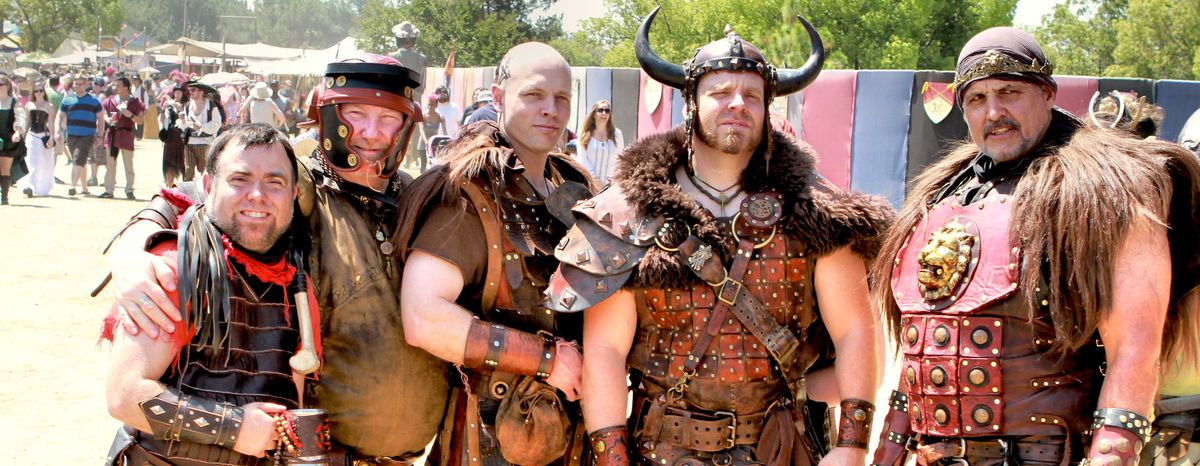
Barbarians next door: How Europe names its neighbours
Published on
Translation by:
Josephine Lisa ArdaThroughout history, every population has needed to define themselves as their own national group. The easiest way to do this? Describe everyone else as the "other". What do the names of various European countries say about their neighbours?
The word “Italy” still harks back to the ancient Greek roots of Belpaese (or "beautiful country"), even if people's understanding of the word has evolved over the years. As proof, you only have to look at the misunderstanding that Sicilian peasants held before national unification - that "Italy" was the name of the wife of noted Italian general, Giuseppe Garibaldi.
Names for the neighbours
Despite the many linguistic and phonetic variations across the whole of Europe, Italians are referred to in the same way almost everywhere, with the notable exception of in Poland. There, Italians are referred to as Wloski and Italy as Wlochy. According to an urban legend which is really popular in the "Country of the Fields" (as is the name of Poland, Polska, which derives from the word pole meaning field), the word wloski sounds the same as the Polish word for hair. Italians are wloski because they are deemed hairier than other Europeans.
However, according to some researchers, the word wloski has older roots: we can identify it in the word Volsci, a population based in the Apennine area in the centre of Italy during the Roman Empire.
Americans at USA Embassy in Warsaw accepted the challenge to try to pronounce some difficult sentences in Polish.
Certainly the German population is the one with the most variations in its name. Deutschland means “land of people” (as the word “land” has always been used in Germanic languages). The Spanish and French call Germans Alemános and Allemands, due to the old Alemanni tribes who were formerly living in the region, while the Italians and English refer to Germans with reference to Germanic tribes.
Alemmi originally meant “all men” and we can still find a connection with the German language, as alle means “all” and Mann, “man”.
Mutes? Or stuttering others?
In the Polish and wider Slavic languages, they found a more original way of refering to Germans: Niemcy, a word whose roots could originate from the word niemy (in English "mute"). This is thought to be due to the fact that the German language sounded so different to the Poles, that it was almost impossible to communicate with each other. There are however, numerous other interpretations of this name. For example it could derive from the river Niémen, which flows through Belorussia and Lithuania, or from the expression nie-my which means "not us".
Could this last interpretation perhaps be a little arrogant? Well, ethnocentrism is a very old trend in Europe. If we think about the ancient Greeks, they used to use the word βάρβαρος (barbarians) to refer to all populations other than those within Hellenic culture. The word "Barbaric" is onomatopoeic and derives from the sound bar-bar, which stood in for all of the unintelligible phonemes of other languages that sounded like little more than stutters to the Greeks. Through Latin, the word has been adopted into almost every European language, though it has since been attributed a more negative meaning, nowadays referring to a rough, violent or beastly person.
Skwerl, by Brian & Karl. What does English sound like to the untrained ear? This video uses gobbledygook, smattered with a few choice English words, to give speakers of the language an idea of what they sound like to other Europeans. Do we all just go ‘Bar-Bar’ to the rest of the world?
Bread and maccaroni
Still, today, there are many words, both neutral and more derogatory, to define "us" as opposed to "the other". For example, Italians call Germans a word which, though derogatory, has an interesting etymology: crucchi has its roots in the Croatian word kruh, meaning "bread". This is due to the fact that Croatian and Austrian prisoners continually requested this from Italian soldiers during the First World War. At a later stage, the term was also adopted to refer to German people.
In many instances, the terms used to insult "others" are related to the traditional cuisine or costumes of the neighbouring cultures, (for example, French people call Italians "The Maccaronis"). Another common way is to make fun of accents and dialects: the French word ritals refers to southern Italian immigrants who are not able to correctly pronounce the French "R".
It is important to question how these differences have becoming fundamental to understanding outselves and perceiving our own identities in relation to others.
---
This article is part of our Tower of Babel series, looking at the vagaries of European languages.
Translated from Che barbari, questi popoli!



